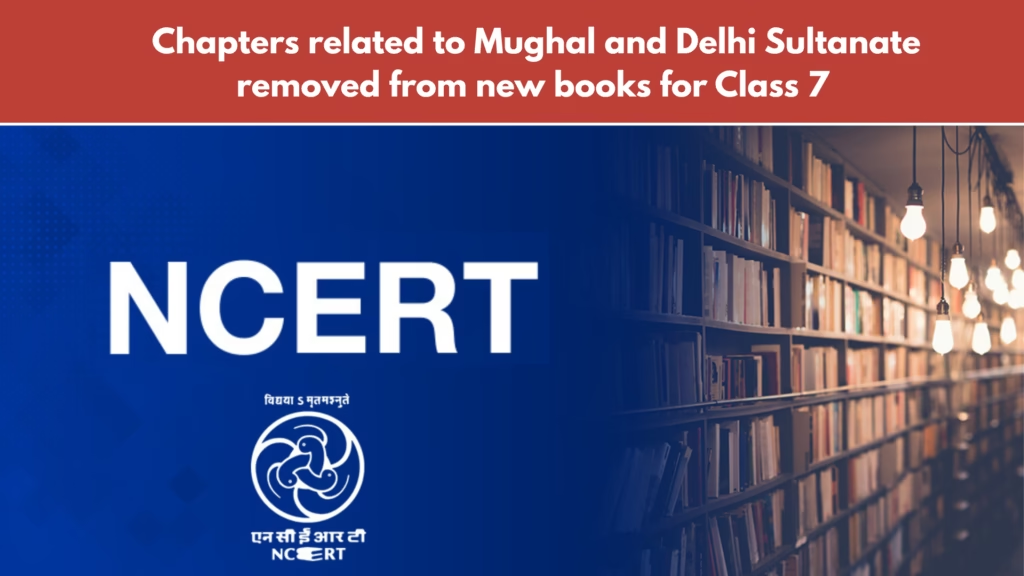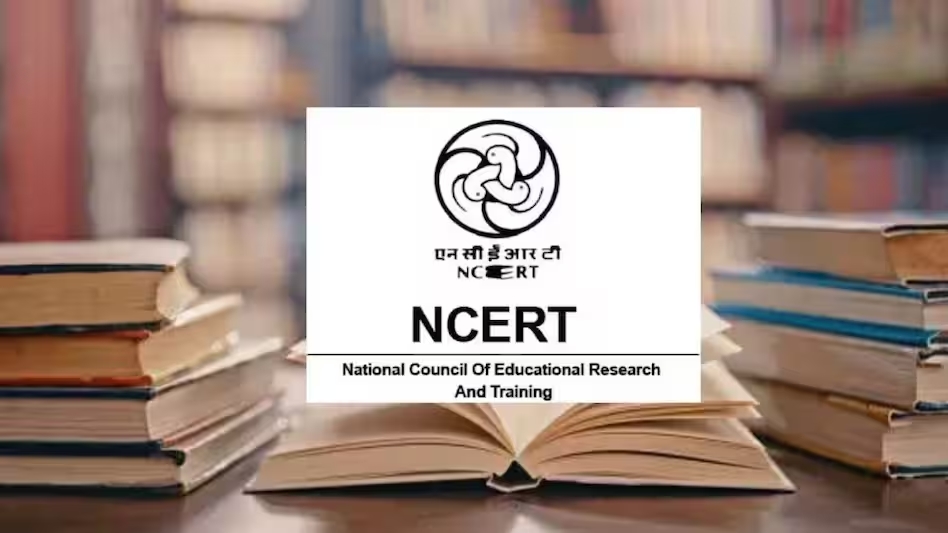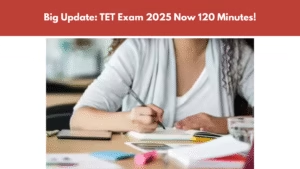NCERT Sparks Debate: Key Medieval Chapters Removed for Class 7

NCERT
NCERT : The NCERT textbooks for grade 7 no longer have chapters on the Mughals or the Delhi Sultanate; instead, they now include chapters on Indian dynasties, sacred geography, Mahakumbh, Made in India, Beti Bachao, and Beti Padhao.
The National Curriculum Framework for School Education (NCFSE), 2023, and the new National Education Policy (NEP) were taken into consideration when creating the new textbooks that were published this week.
It is important to note that the NEP and NCFSE place a strong emphasis on teaching Indian customs, philosophy, knowledge systems, and local context in the classroom.
NCERT representatives who were contacted stated that this is the book’s first section and that the second will be published in the upcoming months.
He made no mention of whether or not the deleted chapter would be incorporated into the second section, though. It is important to note that the chapters on the Mughals and Delhi Sultanate, including the Tughlaq, Khilji, Mamluk, and Lodi dynasties, were previously condensed by NCERT. The new volumes, however, no longer make any mention of them. The Delhi Sultanate and the Mughals are not mentioned in the new book, which contains all of the new chapters.
Sparks Debate :
| Category | Details |
|---|---|
| What’s New | Chapters added on Indian dynasties, sacred geography, Mahakumbh, Made in India, Beti Bachao Beti Padhao. |
| What’s Removed | No chapters on Mughals, Delhi Sultanate (including Tughlaq, Khilji, Mamluk, and Lodi dynasties). |
| Reason for Change | Alignment with National Curriculum Framework for School Education (NCFSE) 2023 and National Education Policy (NEP). |
| Focus of New Curriculum | Strong emphasis on Indian traditions, philosophy, knowledge systems, and local context. |
| Publication Details | First part of the textbook released; second part to be published in upcoming months. |
| Status of Removed Content | No confirmation if Mughal and Delhi Sultanate chapters will appear in the second part. |
| Background | Earlier NCERT versions had already condensed Mughal and Delhi Sultanate chapters. |
| Key Highlight | New textbooks completely omit references to Mughals and the Delhi Sultanate. |
NCERT Starts Discussion: Changes to History Textbooks Cause Discontent
What Has Changed?
The new history textbooks for Class 7 no longer mention the Mughals, the Delhi Sultanate, or dynasties like the Tughlaqs, Khiljis, Mamluks, and Lodis. Instead, fresh chapters have been introduced covering topics such as:
- Indian Dynasties (excluding Mughals and Sultans)
- Sacred Geography
- Mahakumbh
- Made in India initiatives
- Beti Bachao, Beti Padhao movement
This represents a significant shift in the narrative traditionally taught to middle school students about India’s medieval past.
Why Was This Done?
According to NCERT officials, the restructuring aligns with the NEP’s core philosophy: to promote Indian knowledge systems, culture, philosophy, and a locally rooted sense of history. The goal, they say, is to reduce rote memorization and make history more relatable to the Indian context.
The officials also clarified that the textbook released this week is only the first part, and a second installment will follow later this year. However, they remained tight-lipped about whether the missing content on Mughals and the Delhi Sultanate will find space in the upcoming sections.

The Growing Debate
The move has sparked sharp reactions:
- Supporters hail the change as a much-needed course correction, claiming that Indian students should learn more about indigenous dynasties, cultural traditions, and contemporary Indian movements rather than focus predominantly on Islamic rulers.
- Critics, however, argue that erasing key chapters distorts historical facts and selectively edits India’s rich and complex past. They warn that omitting the contributions of major empires like the Mughals undermines a balanced understanding of India’s cultural, architectural, and political legacy.
Academicians, historians, politicians, and educationists are now engaged in a heated debate over whether this “decolonization” of education is truly beneficial or politically motivated.
What Lies Ahead?
With only the first part of the new textbooks available, a lot of uncertainty remains. Will the second part restore some of the missing content? Or will it continue down this new path of re-framing India’s historical narrative?
One thing is certain: NCERT has set off a major conversation about how India teaches its children about the past — and that conversation is far from over.




